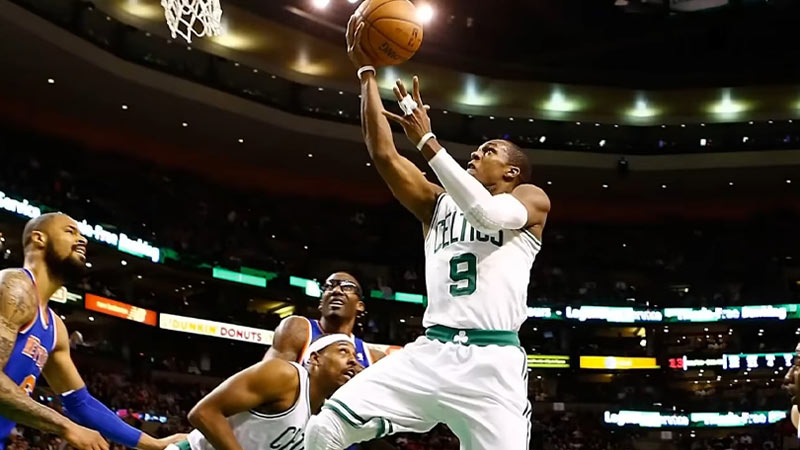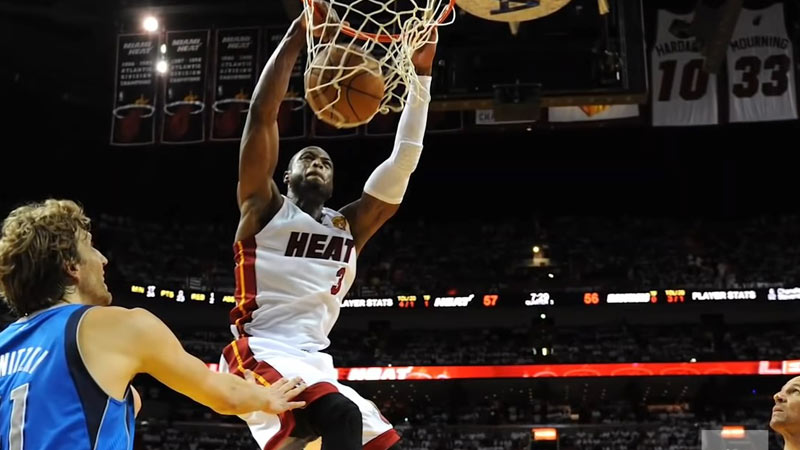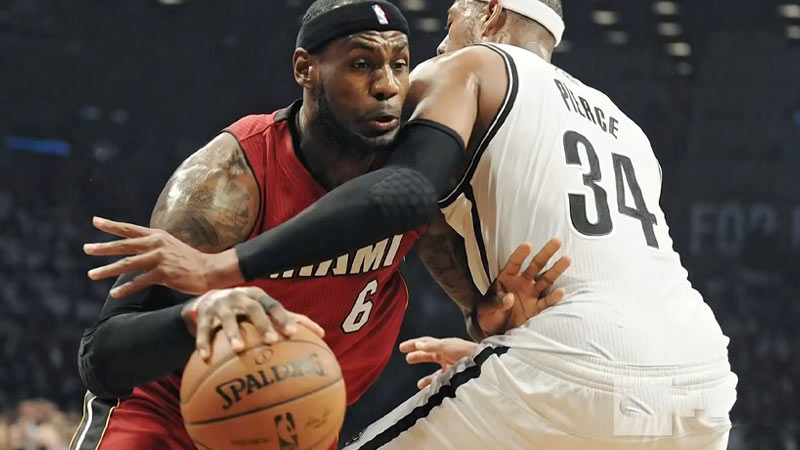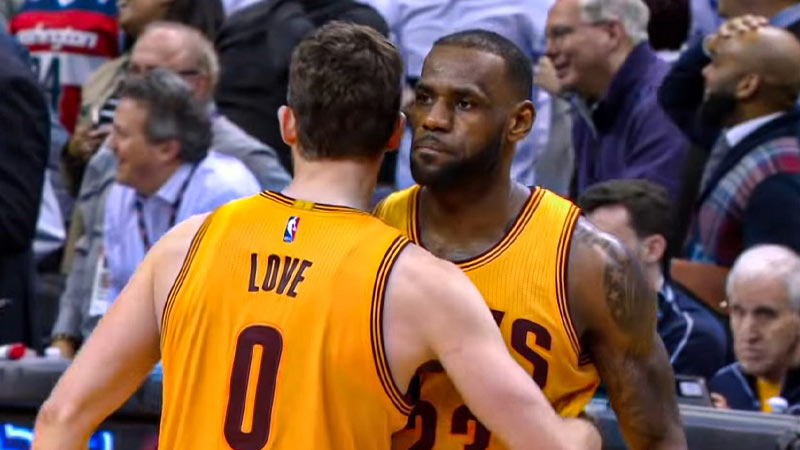Basketball is a dynamic sport that requires players to assume different roles and positions on the court. One such position is the small forward (SF), also known as the “3.”
The small forward holds a crucial role within the team’s lineup, contributing to both offense and defense.
In this article, we will delve into the responsibilities of a small forward, explore the different types of small forwards in basketball, discuss the significance of the position, and highlight some of the best small forwards in the NBA.
By the end of this article, you will have a comprehensive understanding of what a small forward does in basketball and the impact they have on the game. Stay focused.
What Is a Small Forward in Basketball
The small forward (SF) in basketball is a versatile player who contributes to both offense and defense. They are responsible for scoring, perimeter shooting, defensive versatility, rebounding, and playmaking.
The SF position offers matchup advantages, balanced lineups, defensive flexibility, and an impact on the transition game.
Some of the best SFs in the NBA include LeBron James (four-time NBA champion), Kevin Durant (two-time NBA champion), Kawhi Leonard (two-time NBA champion), Paul George (multiple-time NBA All-Star), and Jayson Tatum (NBA All-Star).
Small forwards play a crucial role in shaping the team’s strategy and overall success on the court.
Types of Small Forwards in Basketball
Small forwards in basketball can exhibit varying skill sets and play styles. While they all share a common position, there are distinct types of small forwards that can be identified.
These different types can provide insights into the unique strengths and contributions each player brings to the team. Here are a few notable types of small forwards:
1. Scoring Small Forward

This type of small forward excels in scoring and has a knack for putting the ball in the basket. They possess a versatile offensive game, capable of shooting from the perimeter, attacking the rim, and scoring in various ways.
Scoring small forwards often have excellent scoring instincts, can create their own shots, and are effective in isolation situations.
They can stretch the defense with their shooting range or use their athleticism to finish at the rim. Examples of scoring small forwards in the NBA include Kevin Durant, Kawhi Leonard, and Paul George.
2. Defensive Small Forward
A defensive-oriented small forward focuses on disrupting the opponent’s offensive flow. They excel in guarding multiple positions, possess quickness and agility, and often contribute to steals, blocks, and overall defensive intensity.
Defensive small forwards play a crucial role in team defense, providing versatility and the ability to guard both perimeter players and forwards. They can limit the scoring impact of opposing players and disrupt passing lanes.
Prominent defensive small forwards include Andre Iguodala, Jimmy Butler, and Robert Covington.
3. All-Around Small Forward
The all-around small forward is a well-rounded player who can impact the game in multiple aspects. They have a balanced skill set, capable of scoring, defending, rebounding, and playmaking.
This type of small forward brings versatility to the team’s lineup, able to contribute in various ways depending on the team’s needs. All-around small forwards are often effective in transition, can facilitate the offense, and contribute to the boards.
LeBron James, Giannis Antetokounmpo, and Jayson Tatum are examples of highly skilled all-around small forwards.
Responsibilities of Small Forward
The small forward position in basketball carries a wide range of responsibilities, both on offense and defense. Let’s delve deeper into the key responsibilities of a small forward, exploring their roles in scoring, perimeter shooting, defense, rebounding, and playmaking.
Scoring

Small forwards are expected to contribute to the team’s offense by providing scoring options.
They are versatile scorers who can utilize various techniques to put points on the board. Small forwards have the ability to score through jump shots, drives to the basket, and offensive rebounds.
Their agility and athleticism enable them to navigate through defenses and finish plays. They often possess the skill to create their own shot, taking advantage of mismatches against smaller or slower defenders.
Perimeter Shooting
Small forwards are often relied upon for their perimeter shooting skills. Their ability to knock down shots from beyond the arc and mid-range jumpers is crucial in stretching the defense.
By consistently hitting three-pointers, small forwards force defenders to extend their coverage, opening up driving lanes for teammates and creating scoring opportunities. This skill enhances the overall offensive flow of the team.
Defensive Versatility
Small forwards are known for their defensive versatility. They must be capable of guarding multiple positions due to their agility and strength.
Small forwards often defend perimeter players, utilizing their lateral quickness to stay in front of opponents and contest shots effectively.
Additionally, they can also be tasked with guarding forwards, using their physicality and length to disrupt post plays and contest rebounds.
Small forwards play a crucial role in team defense by providing support on rotations, helping in pick-and-roll situations, and contributing to overall defensive cohesion.
Rebounding
Small forwards have the responsibility of contributing to the team’s rebounding efforts, especially on the defensive end. With their athleticism and positioning, they are expected to secure rebounds and initiate fast breaks.
Small forwards use their leaping ability and timing to grab both defensive and offensive rebounds, providing second-chance scoring opportunities for their team.
Their rebounding contributions are vital in maintaining possession and limiting the opponent’s offensive rebounds.
Playmaking
In certain offensive systems, small forwards are entrusted with playmaking duties. They are expected to make intelligent passes, find open teammates, and initiate offensive sets.
Small forwards with good court vision and decision-making skills can exploit defensive rotations and create scoring opportunities for their teammates.
They act as facilitators, distributing the ball effectively and keeping the offense flowing smoothly.
Significance of Small Forward in Basketball

The small forward position holds significant importance in basketball due to its versatility and impact on the game. Here are a few reasons why the small forward position is crucial:
Matchup Advantages
Small forwards often have size, speed, or skill advantages over their opponents, allowing them to exploit matchups and create scoring opportunities.
Balanced Lineup
The small forward position provides balance to the team’s lineup, as they possess a combination of scoring, defense, and playmaking abilities. This versatility helps create a well-rounded team.
Defensive Flexibility
Small forwards with defensive prowess can guard multiple positions, providing defensive flexibility for the team. Their ability to switch and defend different players adds depth to the team’s defensive schemes.
Transition Game
Small forwards play a vital role in the team’s transition game. Their ability to grab defensive rebounds and quickly initiate the offense can lead to fast breaks and easy scoring opportunities.
Leadership and Impact
Many small forwards assume leadership roles on their teams. They often have the responsibility of leading both on and off the court, setting an example for their teammates, and contributing to team chemistry.
Best Small Forwards in the NBA
Here is a table highlighting some of the best small forwards in the NBA, showcasing their notable achievements and contributions to the game:
| Player | Team | Notable Achievements |
| LeBron James | Los Angeles Lakers | Four-time NBA champion, four-time NBA Finals MVP |
| Kevin Durant | Brooklyn Nets | Two-time NBA champion, 2014 NBA MVP |
| Kawhi Leonard | LA Clippers | Two-time NBA champion, two-time NBA Finals MVP |
| Paul George | LA Clippers | Multiple-time NBA All-Star, All-NBA selection |
| Jayson Tatum | Boston Celtics | NBA All-Star, NBA All-Rookie First Team |
FAQs
What are the physical attributes of a small forward?
Small forwards typically possess a combination of size, athleticism, and skill. They are often taller than guards but shorter than power forwards. Their physical attributes allow them to excel in various aspects of the game.
Can small forwards play multiple positions?
Yes, many small forwards have the ability to play multiple positions, depending on the team’s needs and strategies. They can slide to the power forward position or even occasionally play as a shooting guard.
Do small forwards primarily focus on scoring?
While scoring is an important aspect of their role, small forwards also contribute to defense, rebounding, and playmaking. Their versatility allows them to impact the game in multiple ways.
Are small forwards responsible for guarding the best players on the opposing team?
Yes, small forwards with strong defensive skills often take on the challenge of guarding the best offensive players on the opposing team. They use their size, quickness, and defensive instincts to disrupt their opponents’ scoring opportunities.
Can small forwards initiate offensive plays?
Yes, in certain offensive systems, small forwards are given the responsibility of initiating offensive plays. They can handle the ball, make passes, and set up scoring opportunities for their teammates.
Bottom Line
The small forward position in basketball is a versatile and vital role within a team’s lineup. Small forwards contribute to both offense and defense, utilizing their scoring abilities, defensive versatility, rebounding skills, and playmaking talents.
Their impact on the game goes beyond individual statistics, as they bring balance, leadership, and matchup advantages to their teams.
The responsibilities and significance of small forwards provide a deeper appreciation for their contributions to the court.
So, the next time you watch a basketball game, keep an eye on the small forwards and witness the impact they have on the game’s outcome. Best of luck.







